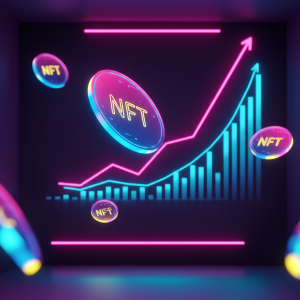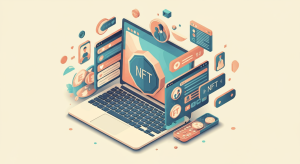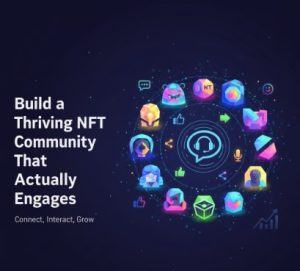Your Complete Guide to NFT Trading Platforms
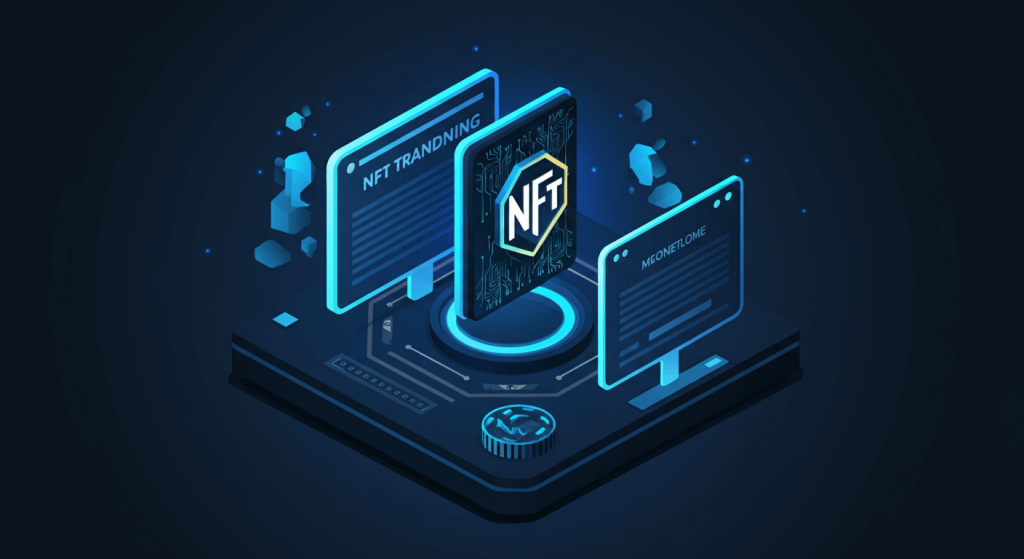
The NFT market has transformed from a niche digital curiosity into a multi-billion-dollar ecosystem. As digital ownership becomes mainstream, choosing the right NFT trading platform can make the difference between profitable trades and costly mistakes.
Whether you’re an artist looking to mint your first collection, an investor seeking rare digital assets, or a collector building your portfolio, understanding how NFT trading platforms work is essential. This guide breaks down everything you need to know about these marketplaces, from key features to security considerations.
The NFT space moves quickly, with new platforms launching regularly and existing ones constantly evolving. By the end of this article, you’ll have the knowledge to navigate this landscape confidently and select the platform that best fits your goals.
What Is an NFT Trading Platform?

An NFT trading platform serves as a digital marketplace where users can create, buy, sell, and trade non-fungible tokens. These platforms operate similarly to traditional e-commerce sites, but they’re specifically designed to handle the unique properties of NFTs and blockchain transactions.
Most NFT trading platforms function as intermediaries, connecting buyers and sellers while providing the technical infrastructure needed for secure transactions. They handle wallet integration, smart contract execution, and often provide tools for creators to mint new NFTs directly on the platform.
The platform typically earns revenue through transaction fees, which range from 2.5% to 10% depending on the marketplace. Some platforms also charge listing fees or take royalties from secondary sales, which can benefit original creators long after their initial sale.
Essential Features of Top NFT Trading Platforms
User-Friendly Interface and Navigation
The best NFT trading platforms prioritize simplicity without sacrificing functionality. Look for clean layouts, intuitive search filters, and easy-to-understand buying processes. New users should be able to connect their wallet and make their first purchase within minutes.
Advanced filtering options help users sort through millions of NFTs by price, collection, rarity, and other attributes. The platform should also provide clear information about each NFT, including ownership history, metadata, and authenticity verification.
Security and Smart Contract Reliability
Security remains paramount when dealing with digital assets worth thousands or even millions of dollars. Reputable platforms undergo regular security audits and implement multi-layer protection systems to safeguard user funds and data.
Smart contract reliability ensures that transactions execute properly and ownership transfers occur as intended. Established platforms typically use battle-tested smart contracts that have processed millions of transactions without major issues.
Multi-Blockchain Support
While Ethereum remains the dominant blockchain for NFTs, many platforms now support multiple networks, including Polygon, Solana, and Binance Smart Chain. This flexibility allows users to avoid high gas fees and access different NFT communities.
Cross-chain compatibility also means access to a broader range of digital assets and price points. Some platforms offer bridging services, allowing users to move NFTs between different blockchains.
Creator Tools and Royalty Management
Comprehensive creator tools enable artists to mint NFTs without technical expertise. The best platforms offer customizable minting options, collection management features, and promotional tools to help creators reach their audience.
Royalty management ensures creators continue earning from secondary sales. Look for platforms that reliably enforce royalty payments and provide transparent reporting on ongoing earnings.
Leading NFT Trading Platforms Compared
OpenSea: The Established Giant
OpenSea dominates the NFT trading platform landscape with the largest selection of digital assets and the highest trading volumes. The platform supports multiple blockchains and offers both auction and fixed-price sales.
Strengths include comprehensive search functionality, extensive collection variety, and strong liquidity. However, users often complain about high fees and occasional technical issues during peak trading periods.
Magic Eden: Solana’s Premier Marketplace
Magic Eden has emerged as the leading NFT trading platform on Solana, offering significantly lower transaction costs compared to Ethereum-based alternatives. The platform focuses on gaming NFTs and digital collectibles.
The user experience rivals larger platforms, with fast loading times and responsive customer support. Limited cross-chain functionality remains its primary weakness compared to multi-blockchain competitors.
Blur: The Trader-Focused Platform
Blur caters specifically to professional NFT traders with advanced features like portfolio tracking, real-time price feeds, and batch transactions. The platform has gained significant market share through its trader-first approach.
Professional traders appreciate the sophisticated tools and competitive fee structure. However, casual users might find the interface overwhelming compared to more mainstream alternatives.
Key Factors When Choosing an NFT Trading Platform
Transaction Fees and Hidden Costs
Fee structures vary significantly between platforms and can impact your profitability. Consider listing fees, transaction percentages, and gas fees when calculating total costs. Some platforms offer reduced fees for high-volume traders or premium subscribers.
Remember that blockchain gas fees exist separately from platform fees. During network congestion, these costs can exceed the platform’s charges, particularly on Ethereum.
Supported Payment Methods
Most platforms require cryptocurrency payments, typically ETH, the native token of their blockchain. Some newer platforms accept credit cards or fiat payments, though these often come with additional processing fees.
Consider which cryptocurrencies you already own and factor in the cost of acquiring the necessary tokens for purchases. Some platforms offer built-in exchange services for convenience.
Community and Market Liquidity
Active communities drive trading volume and create market liquidity. Platforms with higher user engagement typically offer better price discovery and faster sales for sellers.
Research the platform’s social features, community guidelines, and creator support programs. Strong communities often correlate with long-term platform success and stability.
Customer Support Quality
Technical issues or transaction problems require prompt, knowledgeable support. Evaluate the platform’s support channels, response times, and user feedback about problem resolution.
Look for platforms that offer multiple contact methods, comprehensive help documentation, and active community moderators who can assist with common questions.
Security Best Practices for NFT Trading
Wallet Security Fundamentals
Use hardware wallets for storing valuable NFTs and never share your private keys. Enable two-factor authentication on all related accounts and regularly update your wallet software.
Create separate wallets for trading and long-term storage. This limits exposure if your active trading wallet becomes compromised during regular platform interactions.
Identifying Authentic vs. Fake NFTs
Counterfeit NFTs pose a significant risk, especially for valuable collections. Verify the creator’s identity through official social media accounts and check the NFT’s contract address against official sources.
Be wary of suspiciously low prices on popular collections. Cross-reference listings across multiple platforms to identify potential fakes or stolen NFTs.
Understanding Smart Contract Risks
Review smart contract permissions before connecting your wallet to new platforms. Some malicious contracts can drain your wallet or transfer your NFTs without your explicit consent.
Use tools like Etherscan to examine contract code and transaction history. When in doubt, consult community forums or security experts before proceeding with unfamiliar platforms.
The Future of NFT Trading Platforms
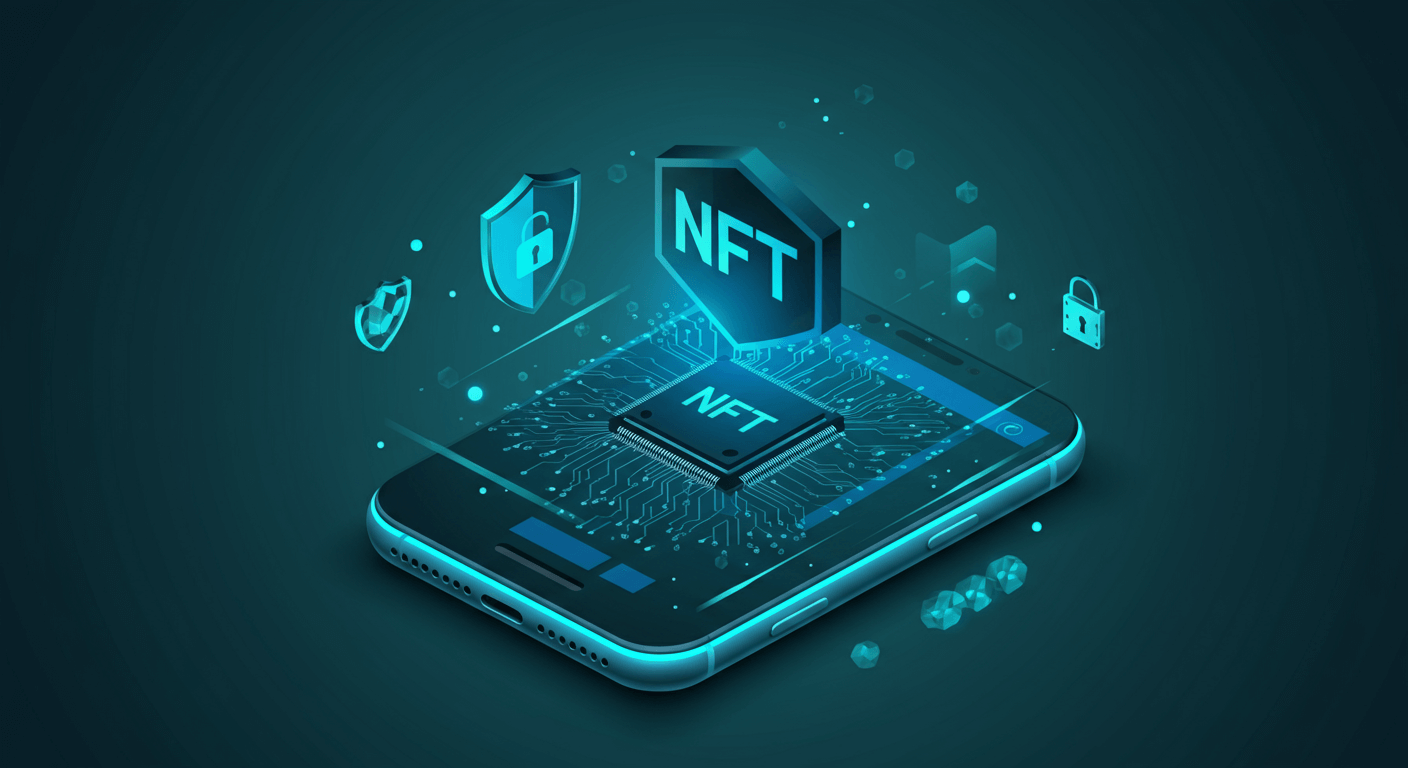
Emerging Technologies and Features
Artificial intelligence is beginning to influence NFT trading platforms through automated appraisals, rarity analysis, and personalized recommendations. These features help users make more informed trading decisions.
Virtual and augmented reality integration allows users to showcase their collections in immersive environments. Some platforms are developing virtual galleries and social spaces for NFT owners.
Regulatory Considerations
Increasing regulatory attention may reshape how NFT trading platforms operate. Platforms are implementing enhanced KYC procedures and transaction monitoring to comply with evolving regulations.
Tax reporting tools are becoming standard features as governments clarify NFT taxation policies. Look for platforms that provide comprehensive transaction histories and tax documentation.
Integration with Traditional Finance
Some platforms are exploring integration with traditional financial services, including NFT-backed lending and fractional ownership models. These developments could increase mainstream adoption and liquidity.
Institutional adoption is driving demand for more sophisticated trading tools and compliance features. Platforms that can serve both retail and institutional clients may have competitive advantages.
Making Your Platform Choice
Selecting the right NFT trading platform depends on your specific needs, experience level, and trading goals. New users might prioritize simplicity and educational resources, while experienced traders may prefer advanced features and lower fees.
Consider starting with a well-established platform to learn the basics before exploring specialized alternatives. Many successful NFT traders use multiple platforms to access different communities and opportunities.
Remember that the NFT space evolves rapidly. Stay informed about platform updates, new features, and emerging competitors to ensure you’re using the best tools available.
The NFT trading platform you choose today will shape your digital asset journey. Take time to research your options, understand the fees and features, and prioritize security above all else. With the right platform and proper precautions, you’ll be well-equipped to participate in the exciting world of NFT trading.



